Ecology is the scientific study of the interactions that determine the distribution and abundance of organisms. It is the total relationships of animals to both its organic and inorganic environment’. It can be said that there is very little that is not ecology.
In this article, the Definition, Subdivision, and Scopes of Ecology will be discussed explicitly.
Ecology
The word ecology originated from two Greek words; Oikos meaning ‘household’, ‘home’, or ‘place to live, and ‘logos’ meaning knowledge. Therefore, ecology deals with the organism and its place to live.
-
The word ‘ecology’ was first used in the 2nd half of the 19th century by Henry David Thoreau in 1858 in his letter. But he did not define it.
-
German scientist Ernst Haeckel in 1859 defined ‘ecology’ as ‘The total relationships of animals to both its organic and inorganic environment’.
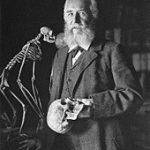

This very broad definition has provoked some authors to point out that if this is ecology, there is very little that is not ecology.
Some more definitions :
- Charles Elton (1927) wrote the book ‘Animal Ecology’. In this book, he defined ecology as ‘ the study of scientific natural history ’.
- Eugene P. Odum (1963) defined ecology as ‘ the study of the structure and function of nature ’.
- Andrewartha (1961) also gave a clear and restrictive definition of ecology: Ecology is the scientific study of the distribution and abundance of organisms.
- Charles J. Krebs (1985) gave a precise definition of ecology based on the modification of Andrewartha’s definition: Ecology is the scientific study of the interactions that determine the distribution and abundance of organisms.
Best safe and secure cloud storage with password protection
Get Envato Elements, Prime Video, Hotstar and Netflix For Free
Best Money Earning Website 100$ Day
#1 Top ranking article submission website
- A synthetic discipline:
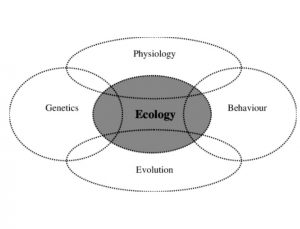
Developmental 3 stages
There are three stages in the development of the biological sciences:
- First stage: A period of general work, when Charles Darwin, Jean Louis Rodolphe Agassiz (1807-1873) and others amassed and gave their knowledge of such natural phenomena as could be studied with the limited methods at hand.
- Second stage: Men specialized in different branches, and gradually built up the biological sciences that we know today.
- Third stage: The third or synthetic stage has started.
Ecology represents the third phase.
Subdivisions of Ecology
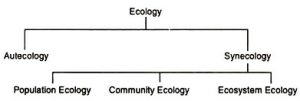

Ecology can be subdivided into two:
- Synecology.
- Autecology.
1. Synecology (plant sociology/general ecology): Syn means together. Synecology is the study of groups of organisms in relation to biotic and abiotic factors e.g. study of mangrove vegetation, Sal forest vegetation, soil microbial communities, plant-microbes interactions, etc.
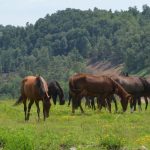
2. Autecology (physiological ecology/applied ecology): Aut means self. Autecology is concerned with the responses of individual organisms to temperature, moisture, light, nutrients, and other factors of the environment e.g. effects of N, P, K, salinity, arsenic, light, temperature, etc on the growth of a plant.
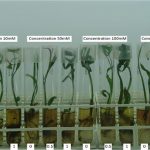
The Scope of Ecology
All life is controlled by two great forces: heredity and environment.
Ecology is the science that deals with the environment. So, Ecology covers practically the whole field of biology and is related to every science which touches life.
- Ecology is a synthetic branch. The significance of studying this branch is immense.
Example: If a forester wants to reforest burned-over mountains he needs the cooperation of a meteorologist to get accurate data on climate; he calls in a soil scientist to determine the suitability of the different soils for the different tree species; then asks for the assistance of a zoologist in protecting his sowings from damage by rodents; after that, he cooperates with the phytopathologist in overcoming fungus attacks, and so on.
There is hardly a science that has not been influenced by the ecological point of view.
Forest Ecology
Ecology is new in name but not in fact.
- All agricultural research is ecology, but not breeding.
- For a successful harvest, it is necessary to know the relation of the cultivated plant to its environment.
- Investigations in alkali and drought-resistant crops have added thousands of acres to the farms. Finally, the workers in this field are gradually recognizing their connection with ecology.
- Ecology knowledge is needed in restoring ecosystems e.g. depleted grazing lands without the expense of artificial reseeding or the hardship of closing the range against grazing.
- Information on the relation of the forest to its environment lies at the basis of forest management practice which is known as forest ecology.
Human Ecology
Geography is the study of man in relation to his environment, known as human ecology.
- In the field of sanitation, men want to change a dirty environment into a clean and therefore healthy one. This is nothing but ecology.
- During World War I, mosquitoes infested the army camps. An ecologist was summoned. He experimented and found a certain kind of fish, which when introduced into the neighboring ponds destroyed the mosquitoes.
Conclusion
Therefore, ecology is relevant in agriculture, forest management, restoration of degraded ecosystems, pest management, health, sanitation, etc.
All biological sciences demand research that is fundamentally ecological. This demand will be even greater in the future.
References
- Book: The Scope of Ecology.
- Author(s): Barrington Moore
- Source: Ecology, Vol. 1, No. 1 (Jan. 1920), pp. 3-5
Revised by
- Noushin Sharmili Suzana on 28th August, 2021.
 Plantlet The Blogging Platform of Department of Botany, University of Dhaka
Plantlet The Blogging Platform of Department of Botany, University of Dhaka
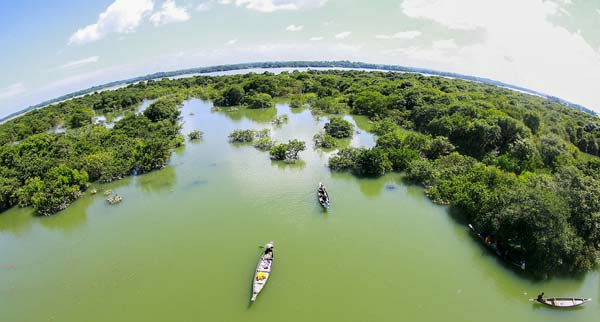



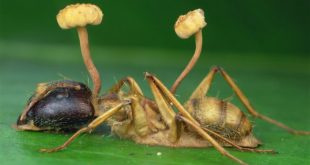

Informative and helpful.
Explicitly organised article and interesting
Simple and precise description. Loved it.